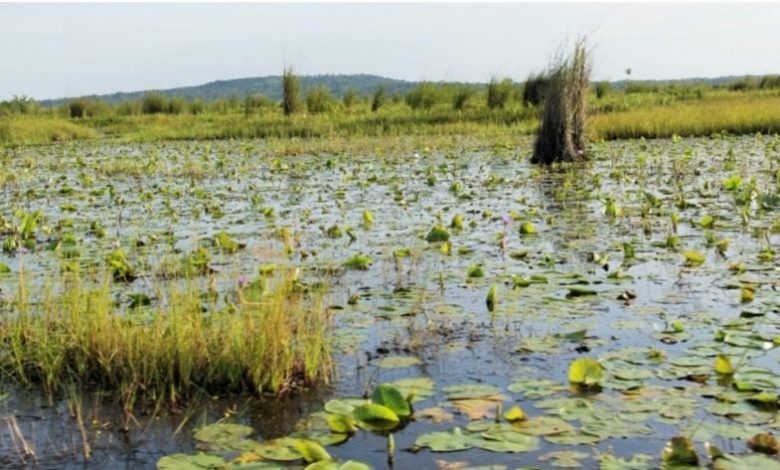PAUL KATO: Let us join hands to protect our wetlands
Many individuals and the investors, rich business men in Bunyoro and other parts of the country are using the critical eco-systems as an advantage of paving away their developments because people who stay near them sell at cheaper prices because they have a thinking that these wetlands are government lands.

It is a responsibility for every Ugandan to ensure that critical biodiversity’s such forests , wetlands and others are protected from being destroyed by encroachers.
Many individuals and the investors, rich business men in Bunyoro and other parts of the country are using the critical eco-systems as an advantage of paving away their developments because people who stay near them sell at cheaper prices because they have a thinking that these wetlands are government lands.
This has left many of the critical biodiversity’s across the country under threat by the individuals, investors and rich business men carrying out their developments especially in Bunyoro region where there is a lot of oil, sugar cane growing activities and other developments taking place.
The above activities leading to the destruction of critical eco-systems instigated some of the stakeholders to go on the ground and take some actions to ensure that the critical eco-systems such as wetlands and forests from the massive developments taking place in the Abertine .
The organizations such as Africa Institute for Energy Governance (AFIEGO) , Oil Refinery Residence Association (ORRA), East African Crude Oil Pipeline Host Community(EACOP HC) and Development Response to Displacement Impact Project (DRDIP) a World Bank funded Project through Investment Project Financing-IDA Loan to the Government of Uganda of about 50 Million dollars ,URD Kagadi and other are fight hard to see that Bunyoro and the country at large are adapting to climate change.
It is observed that these organisations are doing a lot of eco-friendly activities such as fishing rearing, poultry, and tree planning both indigenous trees and fruit trees, bee keeping among other with oil affected communities to ensure that the wetlands and forest in the region are well protected and prepare the oil host communities to adapt to climate change.
The organisations are not working in all the areas that are having oil and gas developments because of the limited funds. This means that more stakeholders need to come up to ensure that all the areas in Bunyoro and Uganda at large are fully engaged in eco-friendly activities.
This will help to mitigate the climate change the country is grappling with, absorb the 102 metric tonnes emissions that are expected from the three oil projects of EACOP, Tilenga and Kingfisher and at the same time create employment to many youth that are unemployed.
Therefore for Uganda to mitigate the negative impacts of the climate change they are grappling with and absorbing all the emissions expected from the oil project, More stakeholders need to come on board to engage Ugandans especially the oil affected communities in eco-friendly activities.
Kato Paul is a Research Associate, Environmental and Human Right Activist.
Katop.adyeeri@gmail.com







